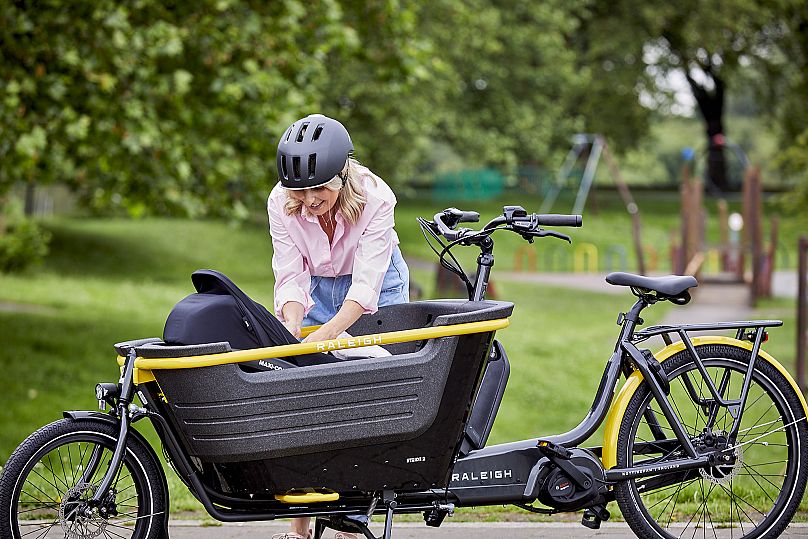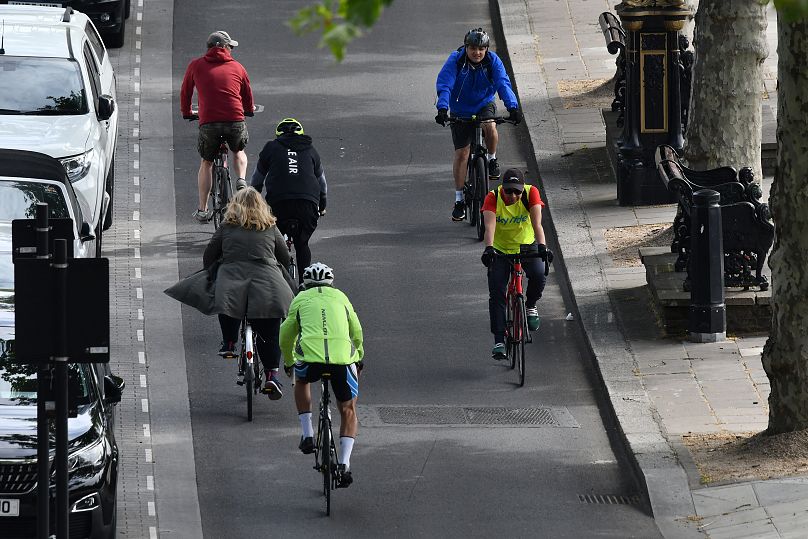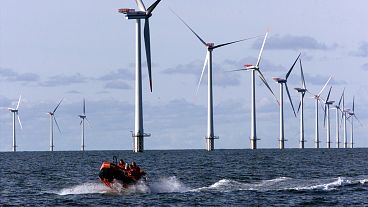These bikes are designed to carry a heavy load and could be the answer to making short, inner-city journeys without using your car.
Our cities are becoming busier than ever – and with an increase in people comes more vehicles on the roads, higher levels of pollution and congestion.
But giving up your car for good is a hard decision. Especially if you have children to take to school, a business to run or even just shopping to carry home from the supermarket. An ordinary bike probably won’t cut it.
A cargo bike, however, could be the answer.
If you aren’t familiar with these odd-looking vehicles, they are push bikes that are meant to carry more than just a rider. There are options designed to carry children, shopping, plants to your allotment and even for businesses to make deliveries.
Using GPS data from delivery company Pedal Me, which delivers within nine miles of central London, researchers tracked deliveries made by cargo bike. They compared them to the routes that would have been taken by vans and the results were promising.
These delivery bikes could get parcels to destinations in city centres 60 per cent faster than vans – with just a tenth of the carbon emissions.
It isn’t just London either. The 100,000 cargo bikes introduced to Europe between 2018 and 2020 are estimated to save the same amount of CO2 every month as would be emitted by 24,000 people flying from London to New York, the report says.
More than half of all freight journeys in cities could be carried out via cargo bike according to recent estimates. As the number of home deliveries soars, it could be the solution to keeping our congestion and pollution in our metropolitan centres to a minimum.
Can you replace your car with a cargo bike?
Businesses are not the only ones looking at these vehicles as a way of cutting out carbon emissions. Short personal journeys for shopping, picking children up from school and running errands can also easily be done without adding to the traffic problem.
British bicycle manufacturer, Raleigh, has just released a range of electric cargo bikes that it is hoping will encourage people in the UK to get on board. Managing director Lee Kidger says they can easily be used to do journeys where you might otherwise use the car.
“70 per cent of UK journeys are under 5 miles,” he says, “I think they’ll replace that five miles in terms of transport, it will be stuff like going down to the local shop and going to the butcher, the baker.”
In London, for example, the average speed of traffic is just over 14 kmp/h, so you can easily keep up with one of these electric cargo bikes.
A London resident myself, I headed down to the Olympic Park in Stratford to give one of Raleigh’s new models a go. Could they replace a car for the few journeys I make a week where I need to carry more than just myself?
They aren’t exactly like your usual pushbike, but after a wobbly start, I started to see the appeal.
Rather than being a kind of magic go button, the motor is there to help you with your own efforts. Using an electric bike helps you ride for longer distances – and having assistance on steep inclines is no doubt useful when you are carrying a heavy load.
With space enough to carry a couple of children or a week’s shopping, pedalling up the hill from the supermarket to my flat would be a breeze. The cost to charge the battery for a week of trips is around 50p too.
While they clearly aren’t suitable for all situations, Lee says that what they could provide is an alternative to a second family car for these local journeys.
Why are they not more popular?
Although they are popular across Europe, sales of these bikes lag behind in the UK.
“The Bicycle Association estimates between 1000 and 2000 cargo bikes were sold in the UK last year,” says Kidger. “Comparing that, Germany was 100,000 last year and France was 71,000.”
While there has been an uptick in bike use in the country in recent years – in part thanks to the pandemic. ut many of us still only ride for pleasure rather than utility. The key to getting us using our bikes is probably better infrastructure.
Pop-up cycle lanes, new routes and fitness campaigns led to an additional £1 billion in bike sales in 2020. Experts have started to look into e-bikes specifically as a way of helping us to return to work without risking our health and increasing our overall mobility.
The biggest impact, they found, could actually be found in those areas without good public transport links.
But as life starts to return to the way it was before, we are now at a crossroads. To encourage people to replace their cars and decarbonise our cities, we need to focus on sustainable options like bikes.
“There’s the new strategy around electric cars, you know, all new cars by 2030 need to be electric,” says Kidger.
“That’s great because that does reduce CO2 emissions but it doesn’t alleviate the biggest challenge within cities today, which is traffic and congestion.”
As Lee concludes, “why do you want to add more cars to the road when you can add sustainable transport solutions instead?”



















